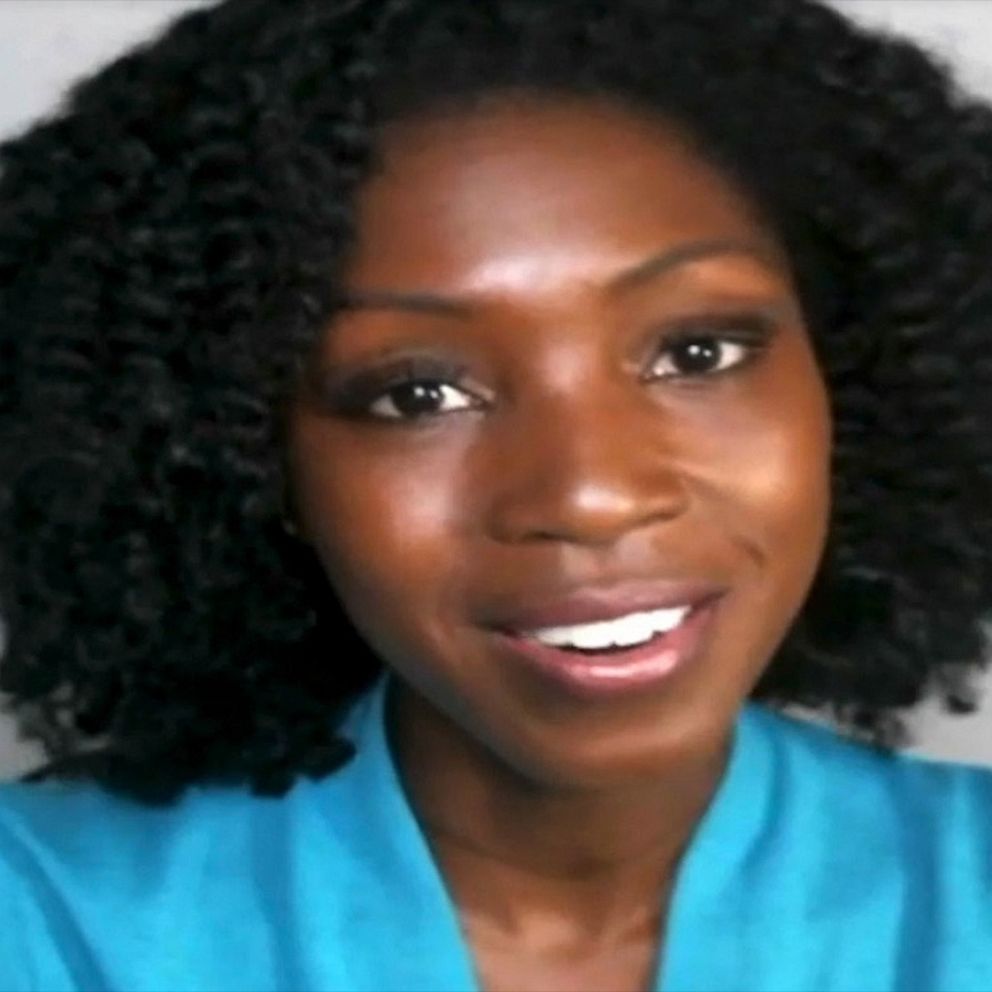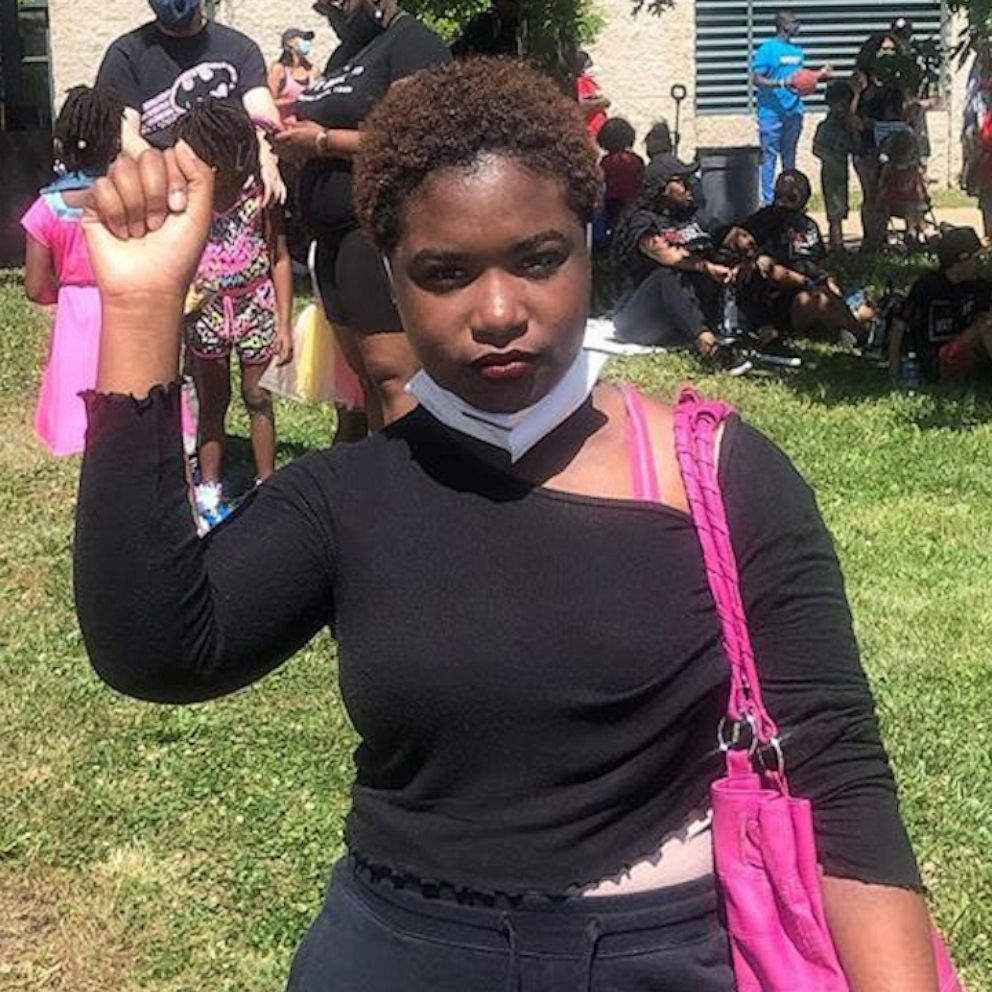Black Girls Breathing founder shares tips to use your breath to help ease stress
Jasmine Marie has expanded the reach of her organization during the pandemic.
Less than a decade ago, Jasmine Marie was a stressed-out 20-something working in marketing in New York City who was told by doctors that her physical ailments were the result of stress.
"It was at that point that I really knew it was important for me to seek different tools to help manage stress, not only in my work life, but my personal life," Marie told "Good Morning America."
The tool that worked best for Marie was breathwork, or breathing exercises and techniques that are used to influence a person's mental, physical or emotional state.
As a Black woman who saw the impact of stress on her own community, Marie became determined to expand the reach of breathwork practices to underserved communities. In 2018 she founded black girls breathing, an organization that teaches meditational breathwork in environments curated for Black women, according to its website.
"Once I got trained and saw the lack of diversity, especially Black practitioners, it was important to bring this tool back to my community," said Marie, who is now a certified breathwork practitioner. "Because when you look at chronic stress and how it impacts the American population, you see that Black people and Black women are most impacted by chronic stress and that ends up turning into physical challenges and ailments."
Marie has seen a new urgency and importance in her work during the coronavirus pandemic, a divisive election and transfer of power and the racial unrest in response to the killings of Black people, including Breonna Taylor, George Floyd and Jacob Blake.
African American adults are 10% more likely to experience serious psychological distress than other races, according to Health and Human Services' Office of Minority Health. They are also less likely to get help for mental health issues, according to data from the U.S. Centers for Disease Control and Prevention.
New data released by the CDC in September also showed that across races, women were more likely to experience symptoms of depression and anxiety than men.
"We really saw an increase in virtual attendance after the murder of George Floyd," said Marie, referring to the Minneapolis man whose death last May reignited calls for police reform and racial justice and sparked thousands of protests across the country over the summer. "From that time, we've jumped in participation each month."
During the pandemic, Marie switched her breathwork trainings from in-person to virtual. She continues to teach breathwork in a way that is tailored to Black women and to addressing the types of microaggressions or trauma they may experience on a daily basis.
"Being a Black woman, I can understand different things that my community is going through and address them," she said. "Accompanying that with the breathwork has made all the difference for how these women feel like they're part of the community."
While breathwork is not a one-size-fits-all solution for mental health issues, it can be used as one tool among many to help handle stress and anxiety, according to Marie.
"What I love about breathwork the most is that you can learn a technique in a session with me or through a video, and then you can take it with you throughout all of your day, no matter what situation arises," she said. "You can just tap into your breath and take two minutes of intentionally slowing down, see what your breathing is doing and do an exercise and be able to really cultivate calm moments throughout your day."
Two breathwork exercises to try:
Before you begin a breathwork practice, Marie says to check with your health care provider to ensure the practice is right for you, given your medical history.
In addition, make sure you are seated in a comfortable position and make sure to listen to your body, Marie said.
"With the increased oxygen going into your brain and blood, it’s very common to feel maybe a little bit lightheaded or dizzy," she said. "With that, you really want to make sure that you listen to your body if at any point you need to take a quick break."
Finally, make sure during any breathwork practice to put your focus on your intentional breathing, including saying to yourself, "Okay, I'm breathing now," according to Marie.
Exercise number one:
"Dedicate 30 seconds to one minute to [this] practice and see how more relaxed and calm you may be feeling, and more centered in your body," said Marie.
"Relax your jaw, release the tension in your shoulders.
Inhale through the mouth, and exhale out with a sigh.
Hug your ribs on the exhale and deplete the lungs as much as possible.
On your inhale, you’re going to feel your chest and diaphragm rise. Those really full inhales, being more intentional with your breathing and deeper with your breathing than you might on a normal basis."
Exercise number two:
"This is one that I call 'the oceanic breath.' I really love this practice because it's so calm," said Marie.
"Inhale into the mouth and exhale out of the mouth.
This time we're not using a sigh.
You're going to connect those breaths, your inhales and your exhales, together, you know how the waves come in and out. You really want to elongate your breathing."
If you or someone you know is in crisis, call the National Suicide Prevention Lifeline at 1-800-273-TALK (8255) or contact the Crisis Text Line by texting HOME to 741741. You can reach Trans Lifeline at 877-565-8860 (U.S.) or 877-330-6366 (Canada) and The Trevor Project at 866-488-7386.







